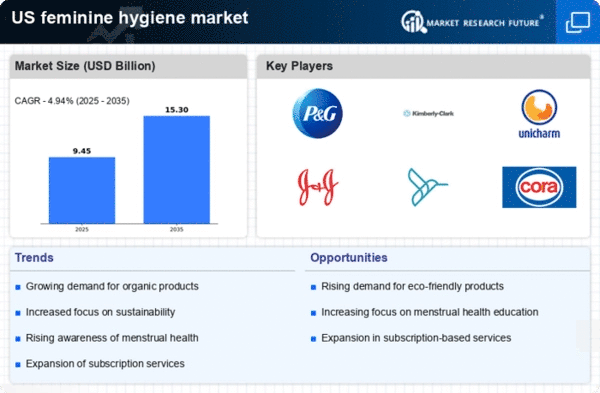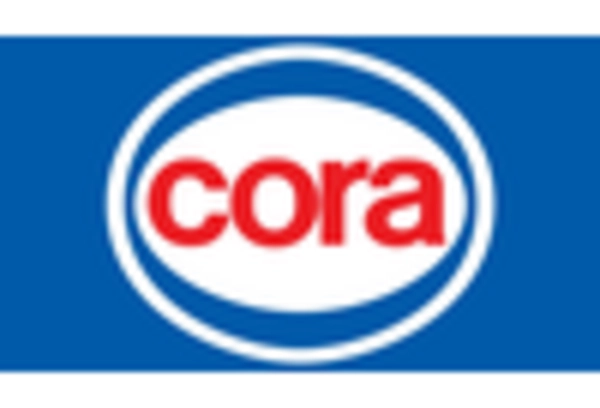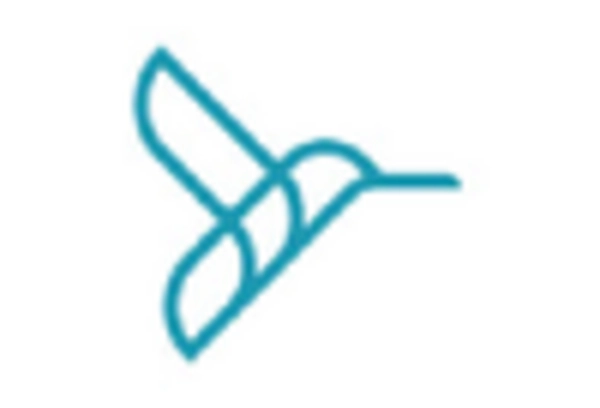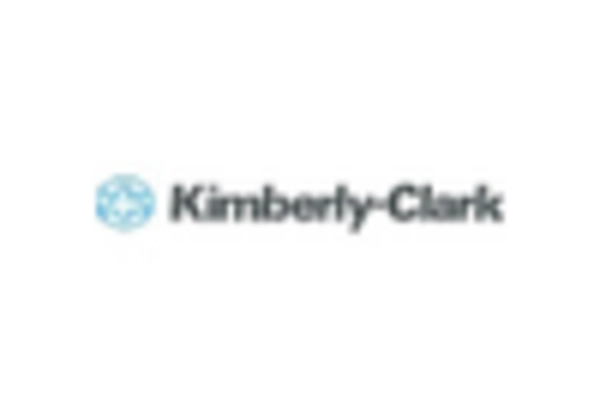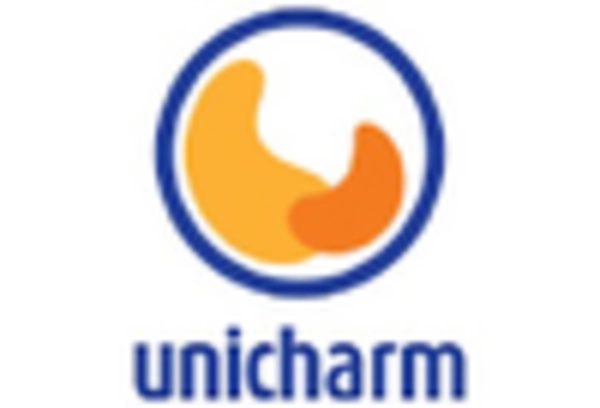Rising Disposable Income
Rising disposable income among women in the US is a crucial driver for the feminine hygiene market. As financial stability improves, women are more willing to invest in premium hygiene products that offer enhanced comfort and quality. This trend is particularly evident in urban areas, where disposable income levels are higher, leading to increased spending on personal care items. In 2025, the feminine hygiene market is expected to benefit from this economic trend, with a projected growth rate of 5% annually. Brands that position themselves as premium or luxury options may find a receptive audience among consumers who prioritize quality and are willing to pay a premium for superior products. This economic factor is likely to shape the competitive landscape of the feminine hygiene market in the coming years.
Shift Towards Eco-Friendly Products
The feminine hygiene market is experiencing a notable shift towards eco-friendly products, driven by consumer demand for sustainable alternatives. As environmental concerns gain prominence, many women are opting for biodegradable and organic options, which are perceived as healthier for both the body and the planet. This trend is supported by data indicating that around 30% of women in the US prefer eco-friendly products, reflecting a significant market segment. Brands that prioritize sustainability are likely to capture a larger share of the market, as consumers increasingly scrutinize product ingredients and packaging. The feminine hygiene market is adapting to this shift, with companies investing in research and development to create innovative, environmentally friendly products that meet consumer expectations while also addressing ecological impacts.
Increased Awareness of Women's Health
The growing awareness surrounding women's health issues is a pivotal driver for the feminine hygiene market. Educational campaigns and advocacy groups have significantly contributed to this awareness, leading to a more informed consumer base. As women become more conscious of their health and hygiene, they are increasingly seeking products that align with their values and needs. This trend is reflected in the market, where the demand for specialized products, such as pH-balanced and hypoallergenic options, has surged. In 2025, the feminine hygiene market is projected to reach approximately $4 billion in the US, indicating a robust growth trajectory fueled by this heightened awareness. Companies are responding by diversifying their product lines to cater to the evolving preferences of consumers, thereby enhancing their market presence.
Regulatory Changes and Health Standards
Regulatory changes and evolving health standards are significant drivers impacting the feminine hygiene market. As health authorities implement stricter guidelines regarding product safety and efficacy, manufacturers are compelled to comply with these regulations to ensure consumer trust. This has led to an increase in the quality and safety of feminine hygiene products available in the market. In 2025, the feminine hygiene market is expected to see a rise in products that meet these enhanced standards, as companies invest in quality assurance and testing. The emphasis on regulatory compliance not only protects consumers but also fosters innovation, as brands seek to develop products that not only meet but exceed regulatory requirements. This dynamic is likely to shape the future landscape of the feminine hygiene market.
Influence of Social Media and Digital Marketing
The influence of social media and digital marketing is reshaping the feminine hygiene market by facilitating direct engagement between brands and consumers. Social media platforms serve as powerful tools for educating consumers about products, promoting brand transparency, and fostering community discussions around women's health. This digital engagement has led to increased brand loyalty and awareness, particularly among younger demographics. In 2025, it is estimated that over 50% of women in the US will rely on social media for product recommendations, highlighting the importance of a strong online presence for brands in the feminine hygiene market. Companies that effectively leverage digital marketing strategies are likely to enhance their visibility and attract a broader customer base, thereby driving market growth.


